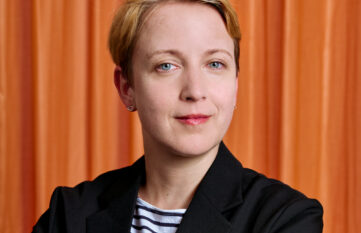Digital sovereignty describes the skills and opportunities to be able to exercise one’s own role in the digital world independently and self-determined. Why is this important for the partner countries of German development cooperation?
Laibach: We want to support our partners in shaping their own digital transformation in a socially responsible and sustainable way and to use its potential for all areas of life without reinforcing existing inequalities and dependencies. In view of the dominant market presence of some IT companies and the geopolitical interests of leading global powers, this is no easy task for our partner countries. This involves making groundbreaking decisions with regard to freedom of action and freedom to shape a society, e.g. when it comes to data protection and data security. In our cooperation, we want to support value-oriented and self-determined alternatives. In particular, this means promoting open, inclusive and sustainable IT ecosystems and expanding our own expertise.
What about KfW’s digital sovereignty as an institution?
We at KfW Group are also facing the challenge of digitalizing our processes and instruments, but also of taking all our colleagues along with us in the digital transformation. We have launched various initiatives to achieve this. As a banking group, we have launched the KfWplus transformation agenda, with which we have set ourselves the goal of developing into a digital transformation and promotional bank. We are also breaking new ground at KfW Development Bank. We have established agile structures in order to develop and improve our own processes and applications together with IT and users. This also includes open source products. However, the widespread use of such open source systems is not always easy in a regulated bank.
What are important aspects of digital sovereignty that KfW is currently promoting in the Global South?
Our digital portfolio has been growing steadily for several years and is now worth EUR 11.4 billion*. It covers a wide range of topics and financing instruments, such as a digital transformation fund that we are financing together with the West African development bank BOAD. We are currently working on scaling up TruBudget, an open source software that we developed on behalf of the BMZ and in close cooperation with our partners. TruBudget enables transparent and secure management of the use of donor funds through the use of blockchain technology. Due to the reduced fiduciary risks associated with TruBudget, donor funds can be processed via the partner systems. Partner countries will be able to integrate external project funding into their own budgets and manage it themselves. This is a major step towards greater digital and financial sovereignty for our project sponsors. We have also had TruBudget certified as a so-called “Digital Public Good”, i.e. as an open source application that contributes to the achievement of global sustainability goals.
What significance will these “digital public goods”, which can provide open access to information and technologies, have in the future in development cooperation?
Open software applications, open data, open standards – these are all important components of digital sovereignty, both in our partner countries and here in Germany. Our goal in development cooperation must be to use and promote these components in our projects so that citizens, companies and public institutions can act and make decisions in the digital space in a self-determined manner. As a development bank, however, we also need to think about possible sustainable financing of digital public goods and get involved in international dialogs. In particular, the question of their sustainable operation has still not been answered internationally and coherently.
What does a digitally sovereign future look like for you?
In summary, digital sovereignty today and in the future means that digital technologies are available, understood and can be used competently. People are at the center of this, whether at our project sponsors or here at KfW. A digitally sovereign future is only possible if both the knowledge and the necessary tools are available.
*Status October 2023



